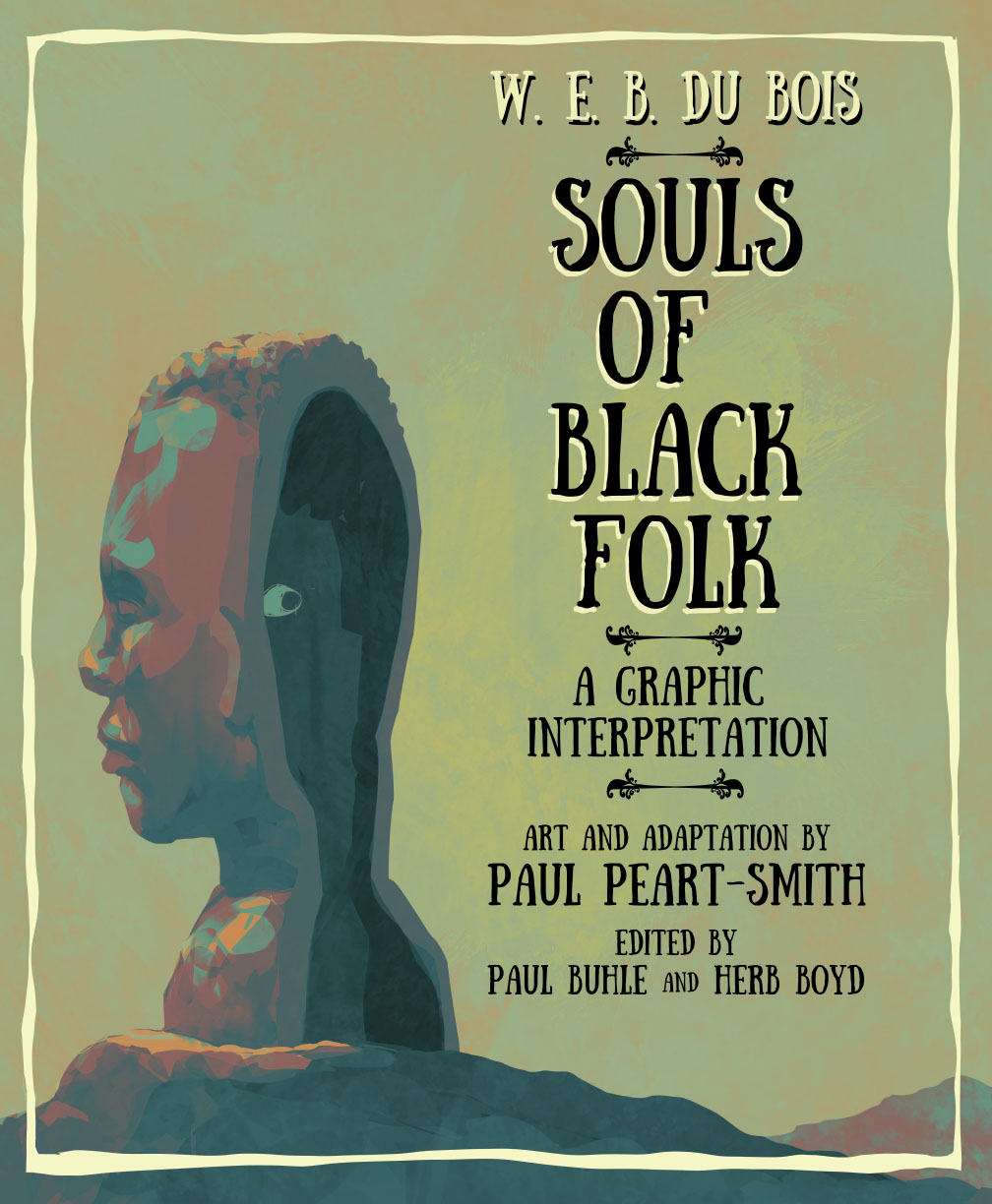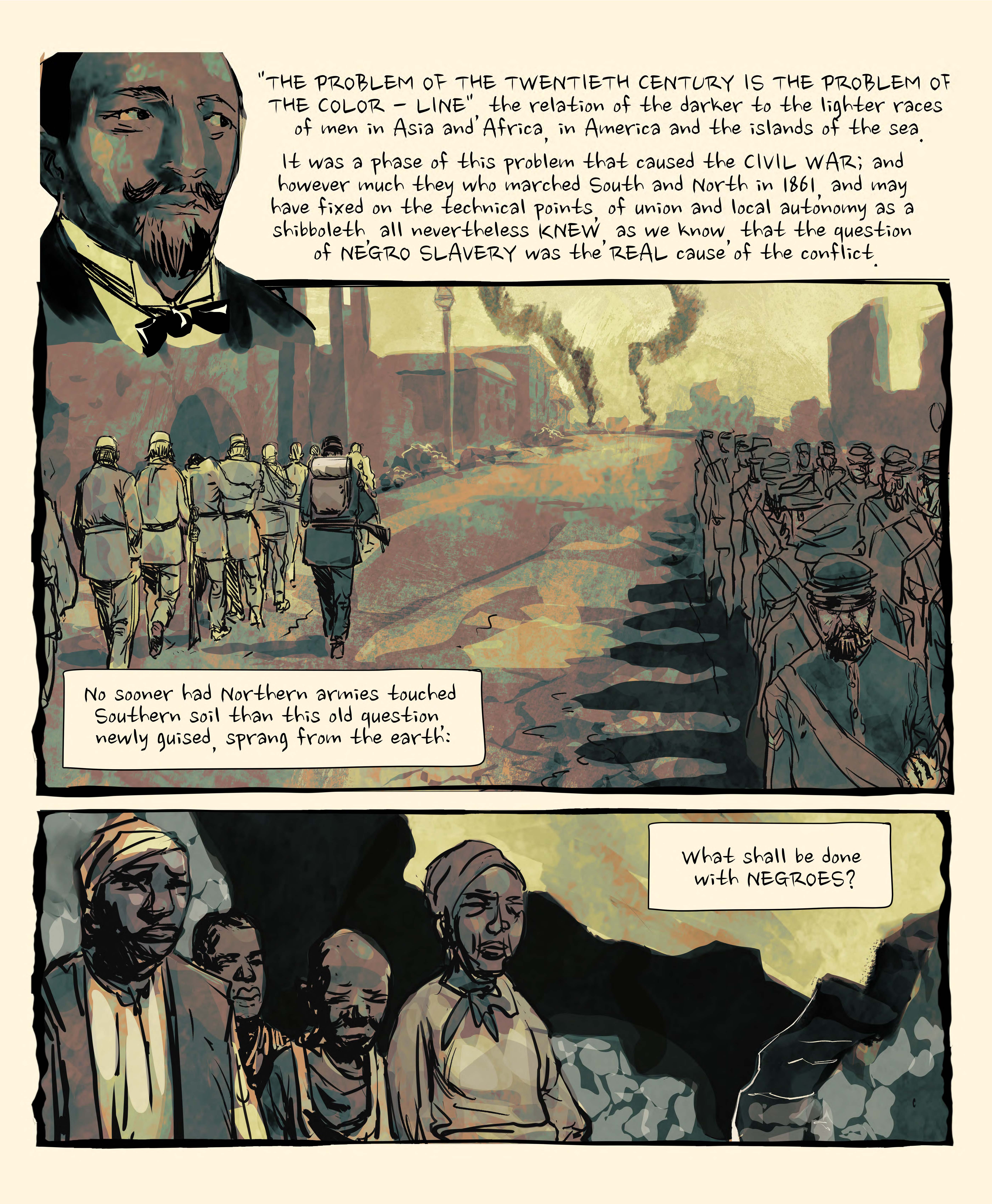Artist Paul Peart-Smith Offers First Graphic Adaptation of Du Bois’s Souls of Black Folks
Updating It For the Era of The 1619 Project and Black Lives Matter
“The problem of the twentieth century is the problem of the color line.” These were the prescient words of W. E. B. Du Bois’s influential 1903 book The Souls of Black Folk. The preeminent Black intellectual of his generation, Du Bois wrote about the trauma of seeing the Reconstruction era’s promise of racial equality cruelly dashed by the rise of white supremacist terror and Jim Crow laws. Yet he also argued for the value of African American cultural traditions and provided inspiration for countless civil rights leaders who followed him.
Now artist Paul Peart-Smith offers the first graphic adaptation of Du Bois’s seminal work in W.E.B. Du Bois Souls of Black Folk: A Graphic Interpretation (Rutgers University Press; April 14, 2023). Peart-Smith’s graphic adaptation provides historical and cultural contexts that bring to life the world behind Du Bois’s words.
Readers will get a deeper understanding of the cultural debates The Souls of Black Folk engaged in, with more background on figures like Booker T. Washington, the advocate of black economic uplift, and the Pan-Africanist minister Alexander Crummell. This beautifully illustrated book vividly conveys the continuing legacy of The Souls of Black Folk, effectively updating it for the era of The 1619 Project and Black Lives Matter.
Blads (book lay out and design) are available now if you’d like to see a sample of the physical book, and PDF copies can be sent along as well of the entire book. Please respond from your best email address, or with your best physical address, if you’d like a copy.


Du Bois’ (also Malcom X’s) biographer, Manning Marable says this about The Souls of Black Folk:
“Few books make history and fewer still become foundational texts for the movements and struggles of an entire people. The Souls of Black Folk occupies this rare position. It helped to create the intellectual argument for the black freedom struggle in the twentieth century. “Souls” justified the pursuit of higher education for Negroes and thus contributed to the rise of the black middle class. By describing a global color-line, Du Bois anticipated pan-Africanism and colonial revolutions in the Third World. Moreover, this stunning critique of how ‘race’ is lived through the normal aspects of daily life is central to what would become known as ‘whiteness studies’ a century later.”
– Manning Marable, in Living Black History: How Reimagining the African-American Past Can Remake America’s Racial Future (2011)
